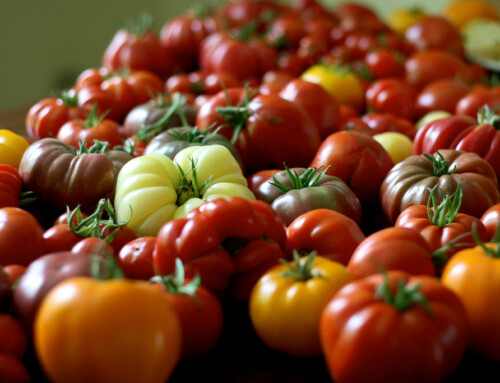Nutrition Alert – Toast and Coffee

Toast and Coffee
Garden Stores and Nurseries are supposed to be about growing plants and making them appealing. We do some of that at Black Lake Organic. However, we have chosen to focus on food gardening. For us this carries on through from turning and treating the soil to sowing the seeds to harvesting to what the food provides (or should provide) to make the most of it for nourishment; it’s a full spectrum. And that’s why we get into Nutrition Alerts.
Toast and coffee are plants, in a sense. Probably a majority of adults in America start off their day with toast and coffee and maybe more. Is that bad for our health? We thought we knew it was. But here are some surprising twists. You won’t get this vital information at any “regular” nursery or garden center.
Coffee News – Good news for Coffee Drinkers! Coffee, it turns out, is a health food! Why not? It comes from a bean that grows on a bush, and most things that come straight out of nature are healthful when we consume them. On the other hand, some are deadly.
Here is another example of where conventional wisdom has it upside-down. A more serious example is the fat fallacy, which is actually a hoax that says animal fats, such as in meat, milk, butter and cheese are bad for you and vegetable oils are much better. And this has nothing to do with caffeine in coffee, or the lack of it. Rather, something called cholorogenic acid evidently is the major positive factor.
That coffee has beneficial health effects has been known for sometime to researchers; it’s just that the word hasn’t gotten around. Now the word is out. The January 2012 issue of Life Extension Magazine has the stunning findings in an article by Michael Downey, titled “Discovering Coffee’s Unique Health Benefits”. To read the full article you may go towww.lef.org.
First off, the coffee bean is incredibly complex in that over 1,000 compounds have been identified in it. Secondly, and this is astounding, of all the foods in the typical American diet, coffee is the greatest source of anti-oxidants! That means it is healthy as hell. Seemingly, the more you drink the better off you are, and the better protected you are from America’s greatest killers, i.e. cardiovascular disease, cancer, diabetes, liver disease and Alzheimer’s disease. Presumably, we are talking about black coffee here.
According to the article, risk of diabetes can be reduced by 13% if you drink one cup a day. But if you drink 4 cups, it goes down 47%, and if you drink 12 cups, by 67%. Of course, you probably ought to eat some good food too. Compared to those who abstain out of some unfounded phobia about coffee consumption, breast cancer risk may be reduced by 57% by drinking copious quantities of java. How many miles would you have to run wearing pink ribbons to prevent that much? All that money spent at Starbucks’ klatches may have been well worth it after all. Go more often. Coffee is medicine.
It seems counter-intuitive, but high coffee consumption reduces or reverses a number of maladies, including headaches, depression and weight gain. Not only that, according to Downey, but the caffeine in 5 cups of coffee can reverse Alzheimer’s disease in 5 weeks, if you can remember to drink them. Go figure, again!
Wheat Woes – Bad news for toast and bread eaters. You aren’t going to like this, but the “Staff of Life” has been broken. You are better off if you never eat another slice of bread (or toast) containing wheat. According to a new book, Wheat Belly, by Dr. William Davis, a cardiologist, wheat (and not fat or sugar) is the chief cause of obesity and all that flows from it. That would include diabetes and heart disease; killers one and four, I believe. An excerpt of the book may be seen by going to www.lef.org.
Yes, this pertains to whole wheat as well as refined wheat flour, and, of course, extends way beyond bread to the thousands of things that have wheat in them nowadays. The special case of gluten (a form of protein) and celiac disease ties into it. Once again, we genius humans have done ourselves in.
Apparently Davis knows what he is saying. He practices preventative cardiology (which seems like an oxymoron). Here is what the book jacket says:
“Since the introduction of dietary guidelines in the 1970’s calling for reduced fat intake, a strange phenomenon has occurred. Americans have steadily, inexorably, become heavier, less healthy, and more prone to diabetes than ever before. After putting more than 2,000 of his at-risk patients on a wheat-free regimen and seeing extraordinary results, cardiologist William Davis has come to the disturbing conclusion that it is not fat, not sugar, and not our sedentary lifestyle that is causing our nation’s obesity epidemic – – – it is wheat.”
Unbelievable! How did that happen? Davis explains that over the centuries wheat has undergone extensive breeding and genetic alteration, with adverse impacts on human consumers. This breeding, which only incidentally included genetic modification technology, has intensified and expanded with the aim of producing higher yields and other sought after traits for baking and food processing purposes. The result is that unless we seek out more primitive kinds of wheat, we are stuck with the modern and deleterious forms, and it matters not how it is grown, chemically, organic or otherwise.
Further down on the book jacket it explains:
“- – – This once benign grain has been transformed into a nutritionally bankrupt and ubiquitous ingredient
Still, there is no question that sugar and high fructose corn syrup have done a lot of damage to our health overall. However, Davis may well be right in regard to the effects of wheat. Much damage may have been done to the health of formerly robust people by refined sugar without them getting fat, possibly before the worst of breeding effects appeared in wheat flour.
Much of the modern breeding research focused on modifying the gluten protein to introduce unique manipulation properties for processing that only wheat (and some less commonly used grains) provides. This may account for the rise in celiac disease and increased demand for gluten-free grain products. However, wheat is a carbohydrate, and there is no evidence that carbohydrates are necessary in the human diet, despite all the hullabaloo about complex carbohydrates, healthy whole grains, “heart healthy” diets emphasizing grains, vegetables and fruits over fats and proteins in the form of meats, eggs and dairy products. Still, we might get away with eating just a few slices of bread a day.
It was wheat that enabled and brought about human population growth and the much-touted benefits and advances of civilization. We are now at 7 billion and about to overrun ourselves like a lemming outbreak. Wheat was pressed into service for taking us out of the hunter-gatherer stage. Now, thanks to our heedless meddling with it, wheat may wind up being our undoing. I propose a truce. Less and better (older strains) of wheat in exchange for population control.
Gary Kline
Black Lake Organic






